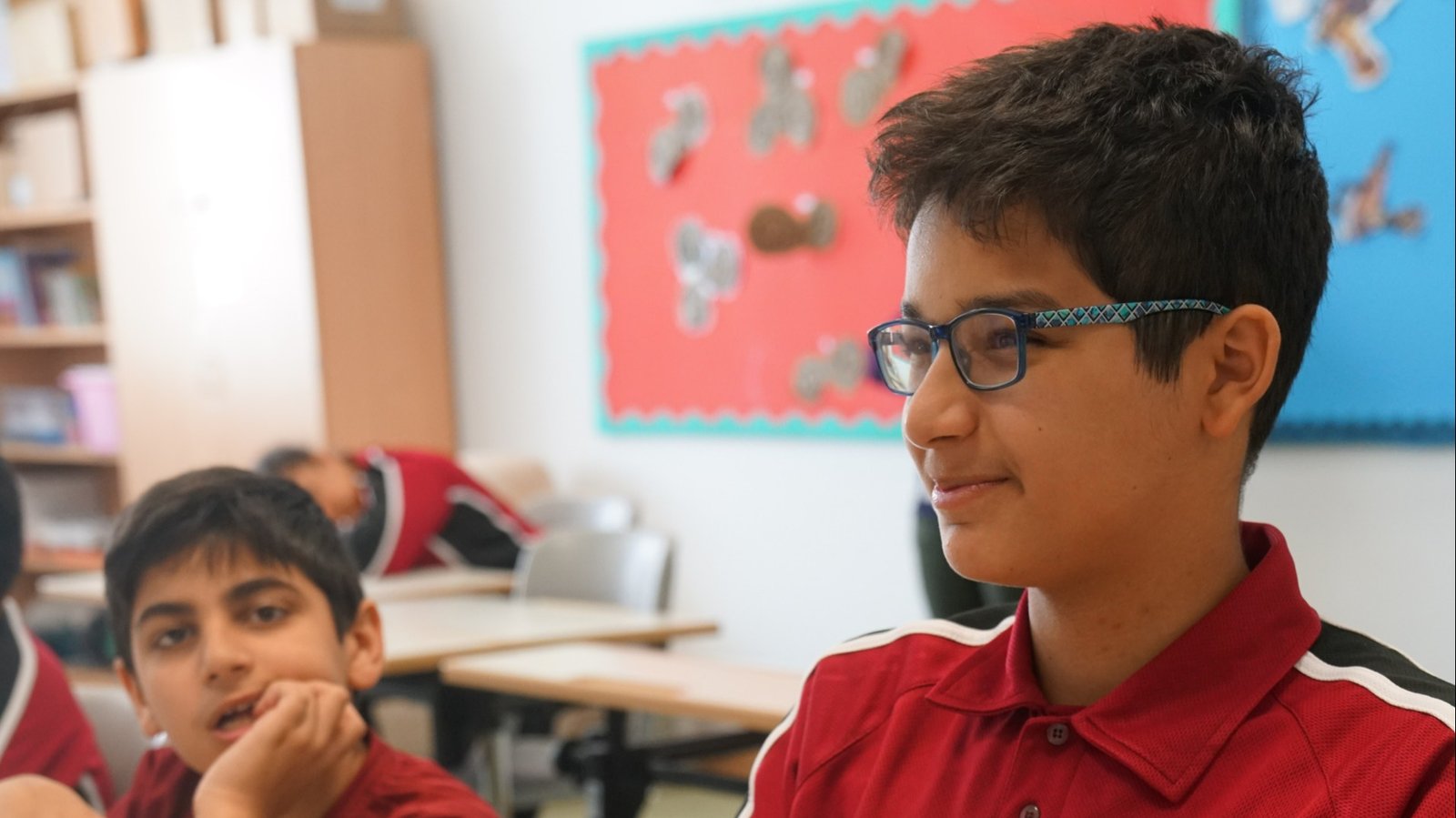Hoops for All Basketball Camp: A FIBA Foundation Initiative Led by...
Abdulrahim Ashraf Abuissa, a FIBA Youth Leader and FIBA Foundation Basketball...
Dec 16, 2024
An expert from Qatar Foundation highlights the crucial role fathers play in shaping a child’s personality
sania siddiqui, May 21, 2024

During a special event at the school, Abdullah Al-Muhannadi, a student at Renad academy, part of Qatar Foundation’s Pre-University Education, proudly stood before his peers and teachers. Spotting his father among the attendees, Abdullah waved enthusiastically and announced, "This is
my father."
Abdullah’s desire for everyone to know who his father was is a direct reflection of the support his father – Lawyer Khalid Al-Muhannadi has shown him. Since Abdullah was diagnosed with autism, his father has stood by him like a rock, literally and figuratively holding his hand through everything, be it the school corridors of their majlis – a sitting room used for social gatherings.
“Since Abdullah
was diagnosed with autism, I realized my critical role as a father and
reorganized my priorities. My number one goal became to care for my son and
develop his skills to facilitate his integration into society,” said Mr.
Al-Muhannadi.
“I did not
withdraw into myself, and I did not feel embarrassed about my son’s condition,
but rather I embraced it with pride.”
The father
and son duo are constant companions, together they explore places in Qatar,
travel and engage in social activities. “Our trips together have allowed us to
form a deeper bond and strengthened Abdullah’s personality, particularly his
self-confidence and emotional stability”, said Mr. Al-Muhannadi.
A study
conducted by the Doha International Family institute (DIFI), a member of Qatar
Foundation, showed that active parental presence positively affects a child’s
overall development by providing a supportive environment. And that for
children with autism, parents must provide emotional and educational support
appropriate to their special needs.
Dr. Khaled Al-Naama,
Director of the Family Research and Policy Department at DIFI, said: “Emotional
support from parents greatly helps children with autism overcome challenges and
be successful. It provides them with the required social skills that help them
carry out simple daily tasks and become independent.”
“The father in particular plays an important role in enhancing communication and building relationships with children with autism, and this include active attention and participation in activities. The father can form a positive model for the child in communication, motivate him to develop his social skills, and make him feel safe and reassured,” Dr. Al-Naama added.
Another study conducted by DIFI on the well-being of
families living with autism revealed that isolating children with autism and
not including them in social events leads to them feeling segregated and losing
their sense of belonging.
Dr. Al-Naama stressed the importance of community
awareness in building children’s self-confidence and recommended that they be
accompanied to social events that enhance their personal development and avoid
noisy or crowded environments to ensure an effective educational and social environment.
He said Abdullah is the perfect example of how his
father’s support in ensuring his son attends social events and goes to public
places since his childhood now means he is comfortably able to and see them as
safe spaces.
According to Mr. Al-Muhannadi,
when fathers ignore the needs of their children with autism and shift
caregiving responsibilities solely to mothers, they are inadvertently depriving
their children of basic life skills.
“It’s not always easy but I make sure I am present at
every school event, because I realize how much joy this brings him, and how
much it enhances his mental health,” said Mr. Al-Muhannadi.
He pointed out that unfortunately
those with autism can suffer from bullying, not just from outsiders but even
within the family, often in the form of isolation. He urged parents to not
avoid their children under the pretense of being busy and that nothing should
be more important than their child.
"It saddens me greatly when I
see parents not attend school events or public events with their child as by
doing so, they are not only stealing from their children opportunities to learn
social skills but are also missing out on making beautiful memories.”
Dr. Al-Naama emphasized the
importance of autism awareness campaigns that educate the community about
symptoms and behaviors of children with autism, as this improves understanding
and support. He said: “Parents sharing their experiences improves awareness,
encourages integration and acceptance of needs of individuals with autism.”
Reflecting on his journey as the
father of child with autism, Mr. Al-Muhannadi said: “Abdullah added meaning to
my life. He taught me how to overcome difficulties and motivated me to strive
to provide opportunities for him and his peers.”
He added: “My message to parents of children with autism
is that you have a wonderful child who deserves all the love, care and most
importantly, your presence. Make your children a permanent priority, be proud
of them and never let go of their hand.”
Source Press Release

Abdulrahim Ashraf Abuissa, a FIBA Youth Leader and FIBA Foundation Basketball...
Dec 16, 2024

Al Jazeera Media Network will launch its new digital platform “Al Jazeera 360...
Sep 14, 2024

Radisson Blu Hotel, Doha is thrilled to announce the return of its highly ant...
Aug 21, 2024

Eid al-Adha, or the "Festival of Sacrifice," is one of the most significant c...
May 21, 2024

To Celebrate Eid Al Adha and Beat the Summer Heat
Jun 11, 2024

Subscribe to our newsletter !
Dec 19, 2024

Waldorf Astoria Doha is delighted to officially announce the Grand Opening of...
Jun 11, 2024

The ceremony honored 290 graduates from seven schools under Qatar Foundation’...
Jun 04, 2024

The MICHELIN Guide announced its arrival in Doha, Qatar for an upcoming 2025...
Jun 04, 2024

52nd Amir Cup Final Tickets: May 24, 2024, Education City Stadium.
May 20, 2024

Qatar Cabinet approved a proposal to allow children to enroll in kindergarten...
May 23, 2024









